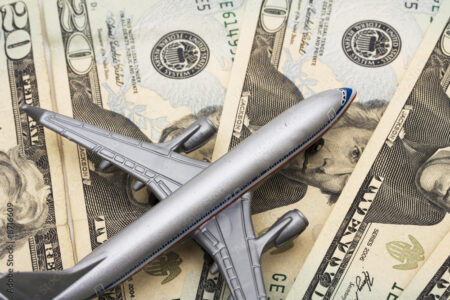Business Aviation Insider explores how important mental health is when it comes to fitness for duty
The stigmas associated with mental health and addiction are fading. As a result, more individuals are coming forward and receiving appropriate treatment.
Nearly half of us are diagnosed with a mental health problem sometime during our lifetime. About 20% of the population reports having had a depressed mood sometime during each year. Addiction – be it to alcohol or drugs – afflicts a reported 7-11% of Americans.
Unfortunately, business aviation industry professionals – pilots included – are not immune to the various mental health issues affecting the overall population. Most commonly, these can include depressive mood, full-blown depression, psychotic conditions such as bipolar disorder, addiction and thoughts of suicide.
“The aviation community is subject to the same life stressors as the general population, but pilots, in general, often have personality traits that make them reluctant to seek mental health assistance,” says Quay Snyder, MD, MPH and president & CEO of Aviation Medicine Advisory Service.
“They want to be in control and solve problems on their own,” Snyder explains. “We often see pilots who have let a situation deteriorate to the point where the problem has gotten significant. This also can be because they are concerned about possibly losing their medical certificate and possibly their career.”
According to Snyder and other aviation medical experts, the good news for pilots – the only business aviation professional affected by federal mental health and medical regulations – is that there is significantly less stigma than there was years ago to seeking help for mental health and addiction issues. As a result, more individuals are coming forward and receiving appropriate treatment, from family counseling to in-patient addiction treatment.
“We have learned a lot from fighting the fatigue issue and removed most of that stigma,” says Greg Farley, chairman of the Fitness for Duty Working Group of NBAA’s Safety Committee and senior global captain for Deere & Company Aviation Services. “We’ve extended the fatigue models to individuals with substance abuse or prolonged mental health issues. The sooner it gets reported, the sooner we get it treated and hopefully get that person back in service.”
Pilots getting back into cockpits
Other recent positive developments include a proliferation of programs designed to help aviation professionals with a suspected or diagnosed problem, such as the Human Intervention Motivation Study (HIMS) program, which provides a structure within which pilots struggling with substance abuse or dependence can be identified, referred for treatment and, if in recovery, safely returned to the cockpit. The FAA helps fund HIMS, which involves managers, pilots, healthcare professionals and the FAA working together.
According to Snyder, who manages the national HIMS program, pilots who require help are identified through a variety of ways: peer intervention, employee drug and alcohol testing, law enforcement encounters, co-worker and family referrals, and, less frequently, self-disclosure. Then pilots usually are treated in an in-patient program, followed by long-term aftercare, participation in a 12-step program, frequent unannounced follow-up drug and alcohol testing, abstinence, and close monitoring by supervisors, sponsors, peers, specially trained aviation medical examiners (AMEs) and other medical professionals.
“HIMS has been a highly successful program, with an 85% long-term sobriety rate,” says Snyder. “We now have more than 6,600 pilots in recovery flying again with their first-class medicals.” (This number includes airline, business aircraft pilots and others.)
Snyder believes pilots in successful long-term recovery make great employees. “They are extremely productive, loyal and grateful,” he explains. And, with the pilot shortage and often tens of thousands of dollars associated with pilot training and company requirements, it is usually less expensive for employers to stick with their pilots through treatment than to let them go and try and find another qualified aviator.
Treating depression
Bipolar disorder, thoughts of suicide and many depressive disorders – and the medications used to treat them – are medically disqualifying for pilots.
However, since 2010, FAA policy allows for use of four SSRIs (selective serotonin reuptake inhibitors) – Celexa, Prozac, Zoloft and Lexapro – under very specific circumstances.
These antidepressant medications are now ‘waiverable’ once a pilot is on a single same-dosage therapy for at least six months. After a required waiting period for stabilization, cognitive testing and oversight by a psychiatrist, pilots being treated for mild to moderate depression may get a special issuance (SI) medical certificate, which allows them to continue flying. The program also involves the services of a specially trained AME who serves as the ‘individual medical sponsor’ and conducts periodic reevaluations.
Overall, enhancing AME training regarding assessing and treating pilot mental health issues is a key goal of the Pilot Fitness Aviation Rulemaking Committee (ARC), which was chartered in 2015 by the FAA after the Malaysia Flight 370 and Germanwings Flight 9525 tragedies to discuss and provide recommendations to the FAA on pilot mental fitness for duty.
The ARC recommended restructuring AME basic and refresher curricula, with the goal of enhancing AMEs’ abilities to identify warning signs and refer pilots for evaluation and intervention. Ultimately, the ARC and medical experts agree that creating a safe, supportive, and penalty-free environment for pilots is the best way to encourage voluntary self-disclosure.
“We have to encourage telling the truth,” says Farley. “Pilots have to see that there will be no consequences for coming forward with an issue.” Fear of losing their job is largely unfounded in the vast majority of cases.
Snyder agrees, noting there are great benefits and better results with early intervention, including counseling. “Counseling is very effective in treating a spectrum of mental health disorders, and pilots do well with cognitive behavioral therapy,” says Snyder.
Snyder has long advocated for pilots to do their own fitness-for-duty checklist as outlined by the FAA, which is called ‘I’M SAFE’. That acronym stands for Illness, Medications, Stress, Alcohol (and other drugs), Fatigue and Eating/Hydration. He also says maintenance technicians should be part of the overall fitness-for-duty dialog.
Including a fitness-for-duty checklist as part of the International Standard for Business Aircraft Operations (IS-BAO) standards for safety management systems is something Snyder thinks would be very beneficial.
IS-BAO program director Ben Walsh says that pilot mental health issues are being studied by the International Civil Aviation Organization (ICAO), the worldwide standards-setting group, and that most companies with an SMS already have mechanisms in place to address risks proactively, and doing so with programs like HIMS is a proven way.
This article was originally published in the May/June 2019 issue of Business Aviation Insider and can be found here.





